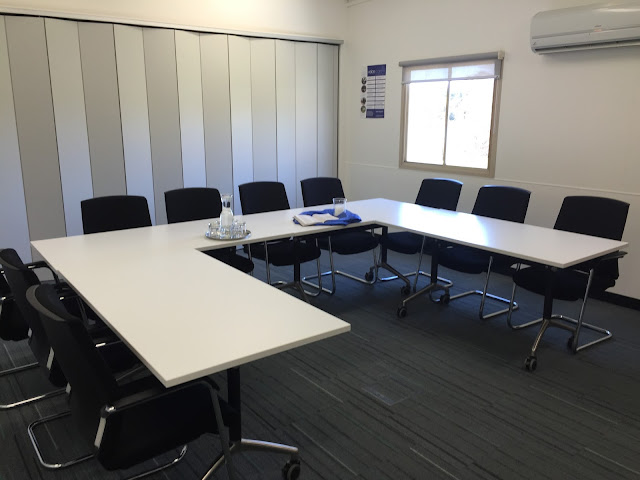Take
the case, my brothers, of someone who has never done a single good act but
claims that he has faith. Will that faith save him? If one of the brothers or
one of the sisters is in need of clothes and has not enough food to live on,
and one of you says to them, ‘I wish you well; keep yourself warm and eat
plenty,’ without giving them these bare necessities of life, then what good is
that? Faith is like that: if good works do not go with it, it is quite dead.
This
is the way to talk to people of that kind: ‘You say you have faith and I have
good deeds; I will prove to you that I have faith by showing you my good deeds
– now you prove to me that you have faith without any good deeds to
show.’
James
2:14-18
The UNHCR has estimated that there are 13
million refugees seeking a place to call home and another 1.2 million asylum
seekers. This is less than 0.2 per cent of the world’s population
displaced for reasons of politics, religion, economics, ethnicity, famine or
drought.
The tragedy that is playing out of
Hungary’s now-fenced border, and its government’s capitulation in bussing 6,000
Syrian refugees into Austria is symptomatic of the failure of Hungarian
humanitarian policy. In defending his response to the surge of refuges
attempting to enter the country, Hungarian Prime Minister Viktor Orban said that
his country had a right not to take in large numbers of Muslims.
It costs nothing to
sit in the comfort our warm homes on a cool spring evening using social media
to express our sorrow and disappointment. It will take something substantially
more to make a difference to the lives of those who have nowhere else to lay
their heads.
Being angry,
deriding our own politicians for their inactivity and apparent lack of
compassion will achieve no more than those who rage against the dying of the
night (apologies to Dylan Thomas). I must act. It is not a matter of belief,
but a matter of faith. If I have
faith, it must, according to James, be proven by my action. I either do
something or I do nothing.
Options are: Pray (for guidance, for
those suffering, for those governing)
Give
(money, time, support, encouragement for those at the forefront)
Create
(Awareness, empathy, write, speak out, lobby)
One response which
cannot be acceptable is, as James warns: ‘I wish you well; keep yourself warm and eat plenty.’
Peter Douglas
HEAD OF SCHOOL
SERVICES, NORTH
Reverse
Mission by Richard Rohr
Jesus, perhaps disappointingly, gives no
abstract theory of social justice. Instead, Jesus makes his life a concrete
parable about how to live in this world. He demands of his first followers that
they be living witnesses to a simple life on the edge of the dominant
consciousness. Once you are at the visible center of any group, or once you are
at the top of anything, you have too much to prove and too much to protect.
Growth or real change is unlikely. You will be a defender of the status
quo--which appears to be working for you. Every great spiritual teacher has
warned against this complacency. The only free positions in this world are at
the bottom and at the edges of things. Everywhere else, there is too much to
maintain--an image to promote and a fear of losing it all--which ends up
controlling your whole life.
An overly protected life--a life focused
on thinking more than experiencing--does not know deeply or broadly. Jesus did
not call us to the poor and to the pain only to be helpful; he called us to be
in solidarity with the real and for own transformation. It is often only after
the fact we realize that they helped us in ways we never knew we needed. This
is sometimes called "reverse mission." The ones we think we are
"saving" end up saving us, and in the process, redefine the very
meaning of salvation!
Only near the poor, close to "the
tears of things" as the Roman poet Virgil puts it, in solidarity with
suffering, can we understand ourselves, love one another well, imitate Jesus,
and live his full Gospel. The view from the top of anything is distorted by
misperception, illusions, fear of falling, and a radical disconnection from the
heart. You cannot risk staying there long. As Thomas Merton said, "People
may spend their whole lives climbing the ladder of success only to find, once
they reach the top, that the ladder is leaning against the wrong wall."
I believe that, in the end, there are
really only two "cauldrons of transformation": great love and great
suffering. And they are indeed cauldrons, big stew pots of warming, boiling,
mixing, and flavouring! Our lives of contemplation are a gradual, chosen, and
eventual free fall into both of these cauldrons. There is no softer or more
honest way to say it. Love and suffering are indeed the ordinary paths of
transformation, and contemplative prayer is the best way to sustain the fruits
of great love and great suffering over the long haul and into deep time.
Otherwise you invariably narrow down again into business as usual.
The MacKillop Centre meeting space
MacKillop Centre Meeting room can be booked through Tracie Clyne 6327 1795
PETER'S WHEREABOUTS FOR NEXT TWO WEEKS:
MEETINGS COMING UP:
FROM ST FINN BARR'S:
FROM ST PETER CHANEL:
FROM OUR LADY OF MERCY:
FROM OUR LADY OF LOURDES:
FROM ST ANTHONY'S:
FROM ST THOMAS MORE'S:
FROM SACRED HEART - LAUNCESTON:
FROM ST PATRICK'S COLLEGE - PROSPECT:
FROM LARMENIER:
FROM ST BRENDAN SHAW COLLEGE:
FROM STELLA MARIS:
FROM ST JOSEPH'S - QUEENSTOWN:
FROM ST PATRICK'S - LATROBE:
FROM ST BRIGID'S:
FROM SACRED HEART - ULVERSTONE:
FROM MARIST REGIONAL COLLEGE:















































No comments:
Post a Comment